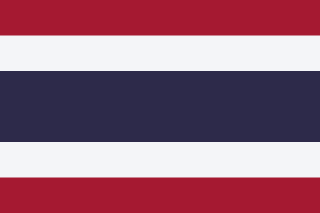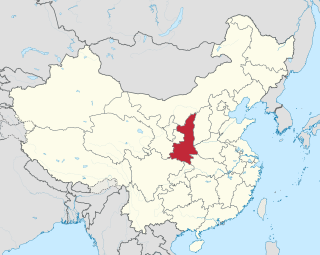
Gold is a chemical element with symbol Au and atomic number 79, making it one of the higher atomic number elements that occur naturally. In its purest form, it is a bright, slightly reddish yellow, dense, soft, malleable, and ductile metal. Chemically, gold is a transition metal and a group 11 element. It is one of the least reactive chemical elements and is solid under standard conditions. Gold often occurs in free elemental (native) form, as nuggets or grains, in rocks, in veins, and in alluvial deposits. It occurs in a solid solution series with the native element silver and also naturally alloyed with copper and palladium. Less commonly, it occurs in minerals as gold compounds, often with tellurium.

The California Gold Rush (1848–1855) began on January 24, 1848, when gold was found by James W. Marshall at Sutter's Mill in Coloma, California. The news of gold brought approximately 300,000 people to California from the rest of the United States and abroad. The sudden influx of gold into the money supply reinvigorated the American economy, and the sudden population increase allowed California to go rapidly to statehood, in the Compromise of 1850. The Gold Rush had severe effects on Native Californians and resulted in a precipitous population decline from disease, genocide and starvation. By the time it ended, California had gone from a thinly populated ex-Mexican territory, to having one of its first two U.S. Senators, John C. Frémont, selected to be the first presidential nominee for the new Republican Party, in 1856.

The 2008 Summer Olympic Games, officially known as the Games of the XXIX Olympiad and commonly known as Beijing 2008, was an international multi-sport event that was held from 8 to 24 August 2008 in Beijing, China.

The 1980 Winter Olympics, officially known as the XIII Olympic Winter Games, was a multi-sport event which was celebrated from February 13, through February 24, 1980, in Lake Placid, New York, United States. This was the second time the Upstate New York village hosted the Games, after 1932. The only other candidate city to bid for the Games was Vancouver-Garibaldi, British Columbia, Canada, which withdrew before the final vote
Deng Yaping is a Chinese table tennis player, who won eighteen world championships including four Olympic championships between 1989 and 1997. She is regarded as one of the greatest players in the history of the sport.

Jan-Ove Waldner is a Swedish former table tennis player. He is often referred to as "the Mozart of table tennis," and is widely regarded as one of the greatest table tennis players of all time. A sporting legend in his native Sweden as well as in China, he is known in China as 老瓦 Lǎo Wǎ or 常青树 Cháng Qīng Shù, because of his extraordinary longevity and competitiveness.

China competed at the 2004 Summer Olympics in Athens, Greece, from 13 to 29 August 2004. This was the nation's ninth appearance at the Summer Olympics since its debut in 1952. A total of 384 Chinese athletes, 136 men and 248 women, were selected by the Chinese Olympic Committee to compete in 28 sports. For the third time in its Olympic history, China was represented by more female than male athletes.

The Chinese Basketball Association, often abbreviated as CBA, is the first-tier professional men's basketball league in China. It is widely regarded as the preeminent professional men's basketball league in Asia.
Zhang Yining is a former Chinese table tennis player. She is considered one of the greatest female table tennis players in the history of the sport.
Gold farming is the practice of playing a massively multiplayer online game (MMO) to acquire in-game currency later selling it for real-world money. People in several developing nations hold full-time employment as gold farmers. Distinct from another popular method of cheating in online multiplayer games, gold farming specifically refers to paying for in-game currency, not rank or experience points as in power leveling. The actual labor mechanics of these two practices may be identical or similar, and those who hold employment as gold farmers may also work as power levelers.

Originally having participated in Olympics as the delegation of the Republic of China (ROC) from 1924 to 1976, China competed at the Olympic Games under the name of the People's Republic of China (PRC) for the first time in 1952, at the Summer Games in Helsinki, Finland, although they only arrived in time to participate in one event. That year, the International Olympic Committee (IOC) allowed both the PRC and the Republic of China to compete, although the latter withdrew in protest. Due to the dispute over the political status of China, the PRC did not participate in the Olympics again until the 1980 Winter Olympics in Lake Placid, United States. Their first appearance at the Summer Olympic Games after 1952 was the 1984 Summer Olympics in Los Angeles, United States.

China competed in the 2006 Asian Games held in Doha, Qatar from December 1, 2006 to December 15, 2006. The team is composed of athletes from mainland China only – each of China's two special administrative regions had its own team. China topped the medal tally with 166 gold medals.

Gold mining in the People's Republic of China has made that country the world's largest gold producer by far with 463.7 tonnes in 2016. For the year 2007, gold output rose 12% from 2006 to 276 tonnes to become the world's largest for the first time—overtaking South Africa, which produced 272 tonnes. South Africa had until then been the largest for 101 years straight since 1905. The major reasons for this change in position had been due to South African production falling by 50% in the past decade as production costs there have risen, more stringent safety regulations have been implemented, and existing mines have become depleted.

China was the host nation of the 2008 Summer Olympics. China was represented by the Chinese Olympic Committee (COC), and the team of selected athletes were officially known as Team China.

The China women's national volleyball team represents the People's Republic of China in international volleyball competitions and friendly matches, governed by Chinese Volleyball Association. They are one of the leading and most successful squads in women's international volleyball and a worshipful sports team in China, having won nine championships titles in the three major international competitions of volleyball, including World Cup four times, World Championship twice and Olympic Game titles three times. The current head coach is Lang Ping, executive coach is An Jiajie. The team now ranks the first place in the FIVB World Ranking.

China was the host of the 2008 Summer Paralympics, held in Beijing. China's delegation included 547 people, of whom 332 were competitors. The athletes, 197 men and 135 women, ranged in age from 15 to 51 and competed in all twenty sports. 226 of the competitors participated in the Paralympic Games for the first time. The delegation was the largest in Chinese history and at the 2008 Games. China topped the medal count at the 2004 Summer Paralympics in Athens. China dominated the medal count winning the most gold, silver, bronze, and total medals by a wide margin in Beijing.

China participated at the 2010 Winter Olympics in Vancouver, British Columbia, Canada, sending its largest delegation at a Winter Olympics with 94 athletes. China had its best ever Winter Olympics medal finish, winning five gold medals and eleven in total, finishing seventh in the medal standings.

The People's Republic of China competed at the 2012 Summer Olympics in London, United Kingdom, between 27 July and 12 August 2012. This was the nation's ninth appearance at the Summer Olympics since its debut in 1952. A total of 396 Chinese athletes, 171 men and 225 women, were selected by the Chinese Olympic Committee to compete in 23 sports. For the fourth time in its Olympic history, China was represented by more female than male athletes.

Thailand participated in the 2010 Asian Games in Guangzhou, China between 12–27 November 2010. The National Olympic Committee of Thailand sent 593 athletes to Guangzhou, and competed in 39 out of 42 sports. Thailand ended the games at 52 overall medals including 11 gold medals. These games witnessed first ever gold medals in Taekwondo.
Sun Zhaoxue is a former Chinese state-owned enterprise executive and former CEO of China Gold, the largest gold mining company in China. He was arrested to face corruption charges in 2015.










